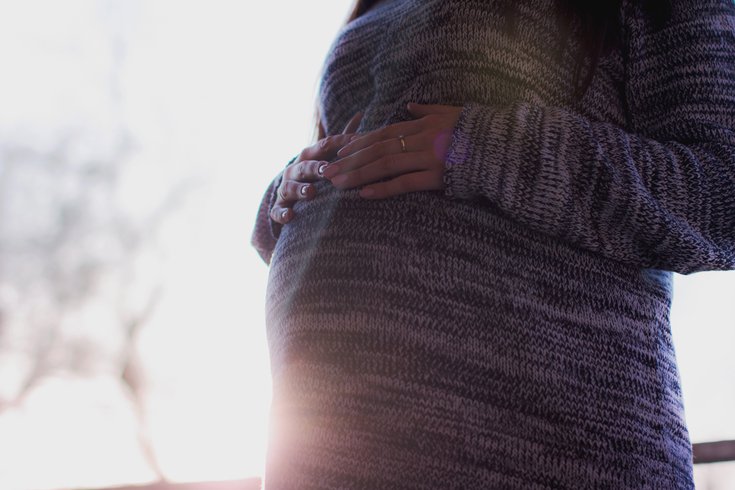
July 05, 2023
 freestocks.org/Pexels
freestocks.org/Pexels
The FDA's clearance of a blood test for preeclampsia, a severe disease affecting pregnant women, offers a critical tool to assess the risks of high blood pressure and choose appropriate treatments.
A blood test that can predict whether pregnant women are at risk of developing preeclampsia, one of the world's leading causes of maternal death and disability, recently received clearance from the U.S. Food & Drug Administration.
The test, developed by Thermo Fisher Scientific, is viewed as a breakthrough for early detection of preeclampsia, which causes severe cases of high blood pressure that occur in about 1 in 25 pregnancies, predominantly among Black women and after 20 weeks of pregnancy.
The condition often is preceded by symptoms such as persistent headache, nausea and changes in vision, but some pregnant women with high blood pressure don't experience these warning signs.
Identifying women who are at high risk of preeclampsia may help doctors act more quickly to find alternatives to safely deliver their babies and preventing severe cases of the disease.
Preeclampsia increases the risk of preterm birth and pregnancy loss in addition to damaging the mother's vital organs, including the kidneys, liver and brain. It can become deadly within days if it progresses to eclampsia, potentially resulting in brain swelling and seizures.
The blood test is designed for pregnant women who have been hospitalized with a blood pressure disorder between the 23rd and 32nd weeks of pregnancy. It measures the ratio of two proteins found in the placenta to determine whether an imbalance is likely to put expecting mothers at risk.
With up to 96% percent accuracy, the test can determine whether a woman will develop preeclampsia within two weeks. If the test comes back negative, women may be discharged from the hospital and continue routine medical check-ups. In two-thirds of women with a positive result, the test can predict whether a severe case of preeclampsia is imminent.
Having a blood test that can distinguish between groups of pregnant women with high blood pressure gives doctors valuable information to help manage symptoms and plan the birth of a baby. Women with preeclampsia typically have induced labor between the 37th and 38th weeks of pregnancy. Some women also develop preeclampsia in the weeks after childbirth, requiring them to take medication for blood pressure and to prevent seizures.
Similar blood tests for preeclampsia have been available in Europe for more than a decade, but the FDA's approval comes at a critical time in the United States. Maternal deaths have more than doubled in the U.S. since 1999, with Black women more than twice as likely to die from pregnancy-related complications than white people.
Preeclampsia affects about 200,000 pregnant women in the U.S. each year. That figure has been rising for decades, partly because doctors have learned to monitor blood pressure in pregnant women more closely, but emerging research suggests that complications from COVID-19 have contributed to greater risks in recent years.
The disease made national news earlier this year when Olympic gold medalist Tori Bowe died from complications during childbirth when she was eight months pregnant. Respiratory distress and eclampsia — which occurs rarely when the risk is not identified — were noted by the medical examiner as possible causes. Two of Bowie's teammates, also Black women, later shared that they had developed preeclampsia during their pregnancies and called for greater awareness about the maternal death rate in the U.S.
Research shows that treating even mild hypertension with blood pressure medication early in pregnancy may reduce the risk of complications without putting the developing fetus at risk. The U.S. Preventive Services Task Force expanded screening guidelines for preeclampsia earlier this year, advising doctors to screen women for all hypertensive disorders throughout their pregnancies.
Early recognition of blood pressure disorders and warning signs in pregnant women, like migraines and sensory problems, can protect the health of women and their babies. The development of preeclampsia is linked to women having a higher lifetime risk of a stroke.
The Preeclampsia Foundation welcomed the FDA's clearance of the new blood test, saying it will improvement treatment for thousands of at-risk women each year.
"Patients and providers will benefit from having better tests to predict progression to preeclampsia with severe features, especially for those patients at risk of severe, early-onset disease or for whom there is some diagnostic uncertainty," said Eleni Tsigas, the foundation's CEO. "Our organization celebrates this result after many years of advocacy with leaders in research and regulatory bodies, such as the FDA, to accelerate the development and adoption of better clinical tools."